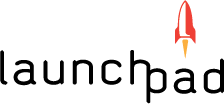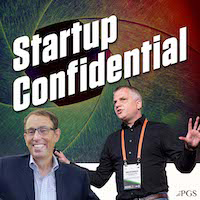Listen to the Podcast Here
Dr. James Richardson:
Welcome to episode 59. One of my interview with Jeremy Smith of LaunchPad about the future of brokering in CBG. Welcome, everybody. This month, we have a special treat, which is a two part interview with Jeremy Smith of LaunchPad USA, and if you don’t know who Jeremy is and you haven’t heard of a retailer called Costco, then shame on thee. But Jeremy, thanks for being here.
Jeremy Smith:
Thank you. Glad to be here. I’m probably the first guest you’ve ever had that can only talk about one subject really, which is Costco.
Dr. James Richardson:
I’m a fascist host. You pegged me right. I’m one of those guys. Jeremy, let everybody know just briefly who you are and why everybody should have already heard of you, if they haven’t.
Jeremy Smith:
Well, they probably shouldn’t have heard of me because the brands are supposed to be the showcase of what we do. It’s not the Jeremy Smith show, it’s the brand show. So we’re about brands, as to where a lot of brokers are about themselves, and so my goal is not to build the best relationship with the buyer because I don’t work for the buyer. The only time … I always tell clients, “It’s the only time I receive money from Costco is the rebate check that I get on my Costco credit card.” But that also means I spent money with them. So I don’t work for Costco, I work for the brand. I think that that’s a big difference between us and why we’ve been so successful. We like working with entrepreneurs and founders like you do. We built a reputation for honesty and integrity, and we don’t bullshit our clients. We’re going to tell them, “This will be hard. Or we think this will be a little bit easier.”
Dr. James Richardson:
I’ve spent two years observing Jeremy. He’s made the cut of high integrity, which is how you get on this show.
Jeremy Smith:
Thank you.
Dr. James Richardson:
As you see reflected in all the guests and I don’t have a lot of guests and that actually explains why. Jeremy, I am so excited for you to take my open ended question, the next one, and run with it for my listeners. I trust your version of this story. What the hell went wrong with the broker world in CBG? I’ve never heard of a class of stakeholder more maligned.
Jeremy Smith:
Well, I think first of all, there was this myth that the brokers created that they have great relationships with the buyers. Most of the buyers, especially at a retailer like Costco, you’re not going water skiing with these people or taking them to the Super Bowl. What people get confused is, I always reference and now he’s in the news everywhere, Alec Baldwin, because of the sales movie he did years ago where ABC, Always Be Closing, which basically, ABC, Always Be Closing really stands for listen to me, I’m not going to stop talking for 45 minutes. I’m not going to listen to you, the buyer, I’m just going to talk and you’re going to love my presentation and you’re going to buy my product.
Jeremy Smith:
First of all, the Costco buyers, that’s who they want to meet. They don’t want to sit with a broker for 45 minutes and listen to the broker talk.
Dr. James Richardson:
Oh my God.
Jeremy Smith:
And it’s sort of like imagine if you bought tickets to go see Denzel Washington and he rips out the script and just sits in a chair reading from the script, you’d be more excited by listening to somebody read Green Eggs and Ham.
Dr. James Richardson:
Yeah, exactly.
Jeremy Smith:
So why are you allowing your broker to do it? And the other issue is no one does any damn rehearsing in the industry. A buyer … Who’s your typical broker? “Bob, we’re all set for the meeting. Meet me 15 minutes outside the Livermore office at Costco in the Bay Area before, and we’ll go over a couple of things there.” That’s the strategy. That’s the rehearsing that goes on. And so what we do that’s different is we talk to the client, and say, “Okay, these are possible subtopics that the buyer will bring up in the meeting. Let’s talk about how you’d respond. I’ll play the buyer. You go ahead. I’ll ask you, “Why is your product so expensive?” And what’s your response going to be?””
Jeremy Smith:
So the first time we let the client go through and then we refine it and we say, “Well, if you say that, that’s going to open you up and the buyer’s going to say, “Well, when you get your costing all fixed up, come back and see me in five years.””
Dr. James Richardson:
Oops.
Jeremy Smith:
So we do a lot of rehearsing because we don’t ever want to ask a question in a meeting.
Dr. James Richardson:
Oh, I know.
Jeremy Smith:
That we don’t already know the answer to.
Dr. James Richardson:
Yeah.
Jeremy Smith:
And then lastly, brokers are so interested in driving and talking in the meeting that what happens is there’s always moments of when a good question gets asked by the broker or the brand and there’s awkward silence, and the client or the broker will then interrupt the buyer and not allow the buyer to respond, and you never get an answer to that question because they’re uncomfortable with silence. We’re very comfortable in that. I’ll sit there for 30 minutes with the buyer to get that answer because we need the answer to that question.
Jeremy Smith:
And one time, I got the presentation before the meeting and I said to the VP of sales, I said, “Have you timed yourself doing this presentation?” He said, “No.” I said, “I just went and did this.” I said, “I went through your whole presentation. It’s 36 minutes.” A Costco average meeting is one hour of which the buyers are usually 10 to 20 minutes late for. So he said, “Oh no, don’t worry about it. I’ll breeze through it.” So we go to the meeting, he goes through his presentation. He’s down to the final two pages. And the buyer says, “Time up.” The buyer said, “I got to go. I got another meeting. You just spent 45 minutes reading a PowerPoint presentation to me. I’ll get … That’s the end of the meeting.” I said, “If you can’t say something in 10 pages or less …”
Dr. James Richardson:
Oh my God.
Jeremy Smith:
“You shouldn’t be at a meeting. You don’t know your brand.” And I said, “And I know that’s not true about you.” No one can tell the story of the brand better, hopefully, better than the founder of the company. It’s an important relationship that needs to be established at the beginning, and if you have a broker that says, “We don’t allow clients to come to the meetings.” That’s your first step that it’s time to hang up the phone and move on.
Dr. James Richardson:
So one of the things that I’m very confused about, that I think confuses my listeners too, I would imagine, is that if the ideal situation is that you are learning how to be a very good salesperson for your own brand, right? So you’re opening up the meetings more or less yourself as the founder, and that’s what I preach because if they suck at that, I mean, there’s a real problem. And I do meet people who don’t work on those skills at all, and they instead spend all this time trying to find the perfect broker, master broker, national broker, whatever, that’ll set up essentially an outsourced sales team.
Dr. James Richardson:
And I’m confused as to what the hell the value would be of having a bunch of outsourced people essentially work for you part time, when shouldn’t you be building that capability internally? And if so, what is a brokerage doing if you have a good sales team? That’s the question that confuses me.
Jeremy Smith:
Well, there’s a simple answer to this. When you’re starting off and your resources are tight, a broker can be a very good option for you in the beginning, but most companies transition when the business builds. So you’re talking about a company that’s usually under $5 million in sales. So their resources are stretched, you can’t build … Let’s say they’re going to pay you 5% commission. You can’t build the sales team for 5% of costs.
Dr. James Richardson:
Right.
Jeremy Smith:
In that situation, finding the right broker can be a huge asset for the brand to start with knowing that plan B is to transition at some point to you handling the business yourself, and also, the broker may not be the best firm to teach you how to sell because [inaudible 00:08:03] about it is some of them have no clue that they’re bad at what they’re doing. You really have to be able to figure that out.
Jeremy Smith:
But one of the other problems and this falls on the brand side is that too often brands call their buddy at another company who’s already successful. And says, “Well, you’ve had a lot of success at Costco. Who did you use?” The first problem with that, your buddy is … Let’s say he’s got a frozen food product and you’re in snacks, that broker may know nothing about the snack category.
Dr. James Richardson:
Yeah.
Jeremy Smith:
But you just assume because you trust Joe and Joe is a great guy and Joe tells you how great they are, but if they don’t know anything about the snack category, then why are you using a frozen foods brand broker to try and take you into the snack department? You shouldn’t be. That’s sometimes the challenge that comes up.
Jeremy Smith:
There’s another issue too, and that’s how brands go about selecting brokers because the first question they always ask is, “Well, what are your relationships like with the buyers?” Yeah, you think they’re going to say to you, that they’re going to tell you the truth that Sandy, they have no relationship with, and Dave just loves them, but we can’t get anything in with Sandy. They’re going to tell you the same … That question can get asked a thousand times and the answer is always the same, “We’ve got great relationships throughout Costco. The buyers switch all the time and so we know everybody at Costco. That’s not the problem for us, even though I’ve never represented a snack brand in the history of the company, we know the category.”
Dr. James Richardson:
Stay tuned on December 15th, the second part of my rousing interview with Jeremy Smith of LaunchPad will go live. So subscribe to Startup Confidential on your favorite podcast platform. Be safe out there.

